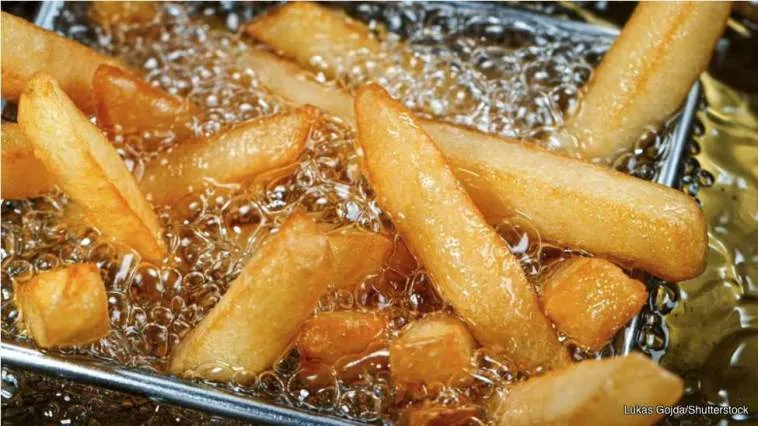(TastingTable) Ever wondered why cooks on television wait until after their food is done frying to salt them? You would think salting your food beforehand would infuse flavor throughout, like marinades do for so many cuts of meat, but science says otherwise. Escoffier states that it’s best to avoid salting before frying because salt lowers the smoke point of the oil.
When the smoke point of the oil is lower, your food can burn quicker. For example, olive oil has a much lower smoke point than canola oil, which is why olive oil is used for things like a quick saute, an ingredient in salad dressings, or a sauce to sop up crusty bread (via MasterClass). It can’t withstand heat for long periods, whereas canola oil can. However, adding salt to canola oil can bring the smoke point down and defeat the purpose. Let’s get down to the nitty-gritty on why this is.
Salt ages oil

According to Cook’s Illustrated, when ionic substances such as salt are heated in oil at high temperatures, small amounts of free radicals begin to form. Before we go any further, what is a free radical? According to a study in Pharmacognosy Reviews, a free radical is an unstable, highly reactive molecular species that is of independent existence and contains an unpaired electron in an atomic orbital. Basically, they are unstable atoms that can damage cells, which can cause illness and aging (via Medical News Today). So not only do these free radicals age us, they age the oil we fry foods in. Does It Go Bad states that vegetable oil takes 12 to 18 months to go rancid if unopened and six to 12 months if opened. Once free radicals are introduced — i.e., salt is present in frying oil — the oil can go rancid within a matter of days.
For home cooks, this isn’t a huge issue. Cook’s Illustrated conducted a study where they fried french fries in peanut oil that had just enough salt in it to season the potatoes. The first batch was fine, but they let the oil sit overnight and repeated the process twice more. They even compared the results with a control batch of oil that had zero salt present. They concluded that the salted batch lowered the smoke point of the oil within a couple of degrees — which is not a huge difference — and there was no detection of rancid aromas.
In restaurants, it’s a big no-no







